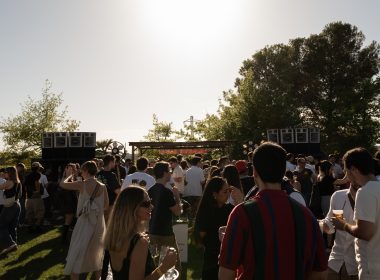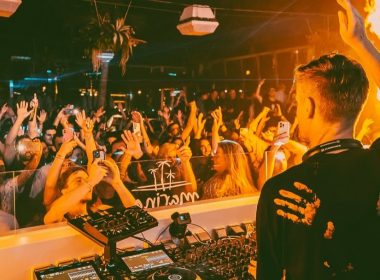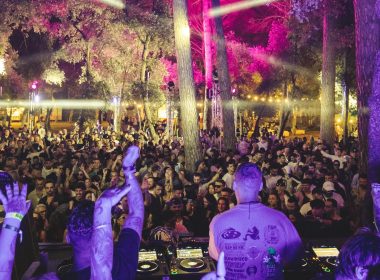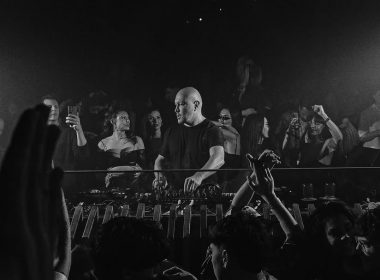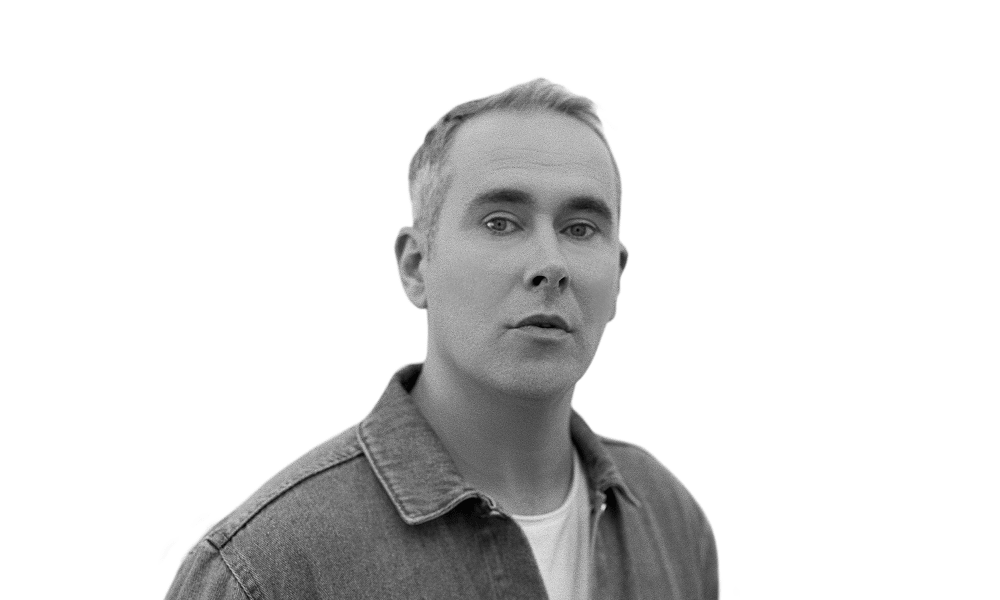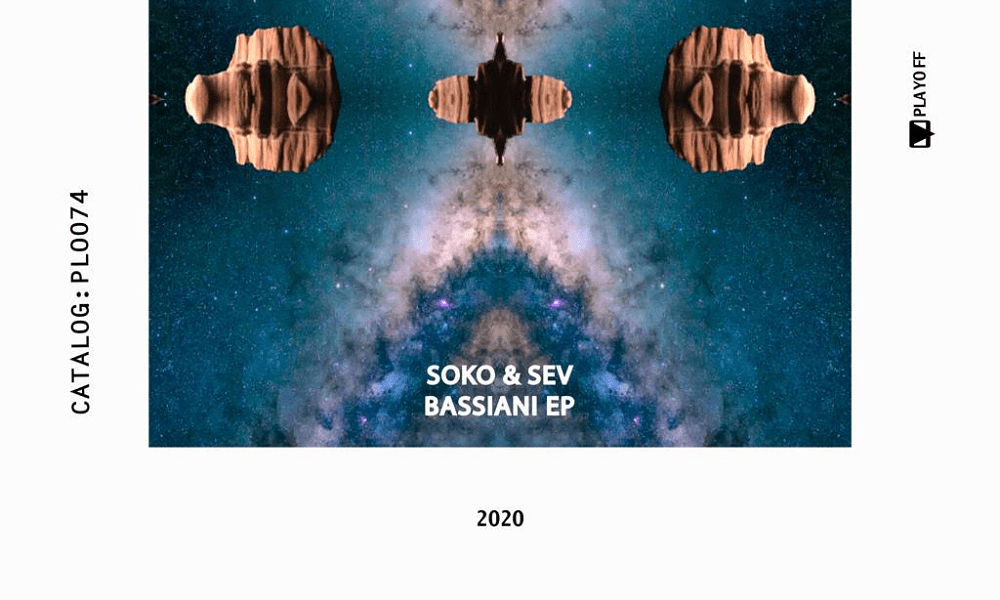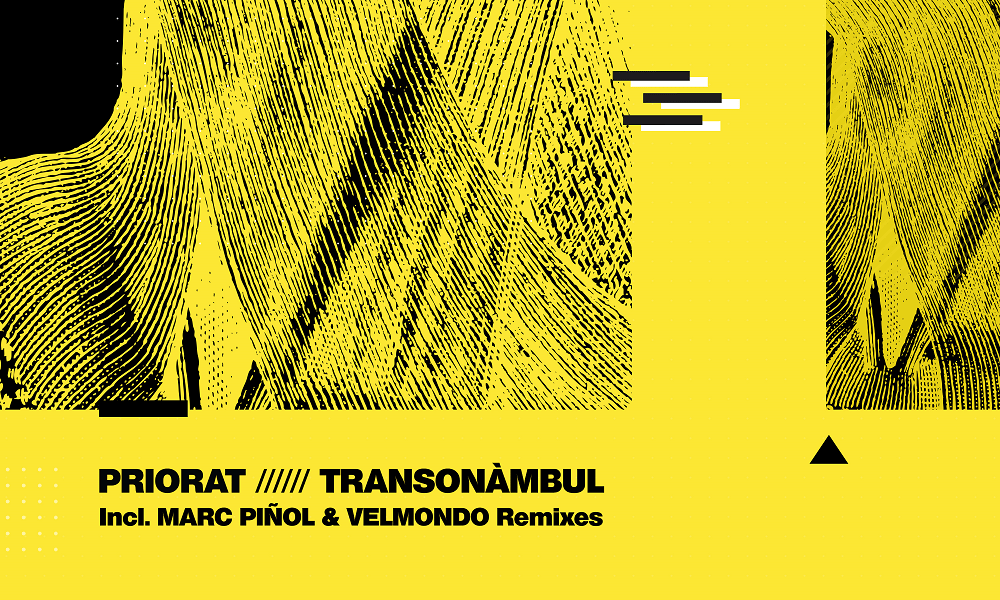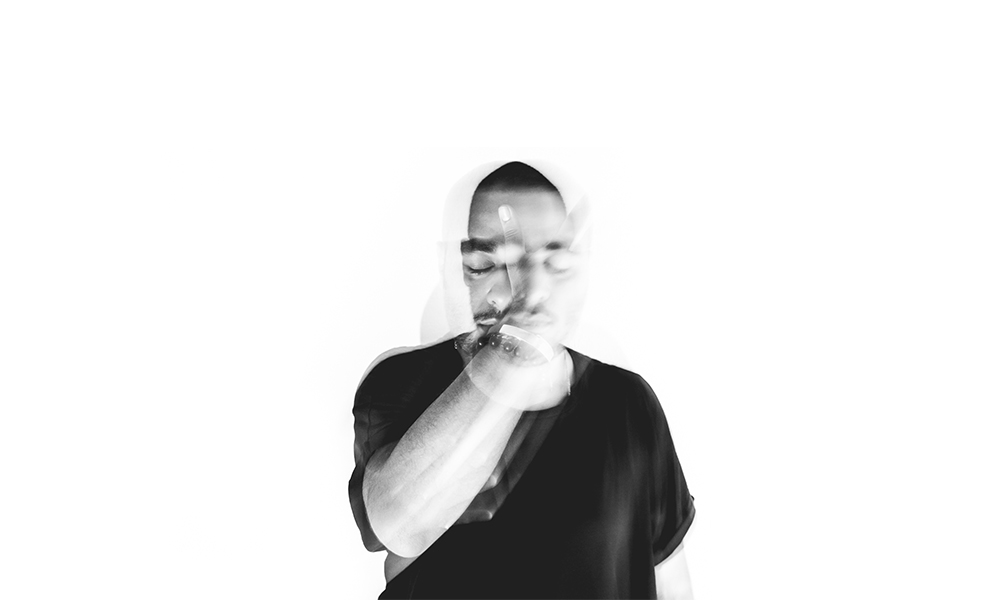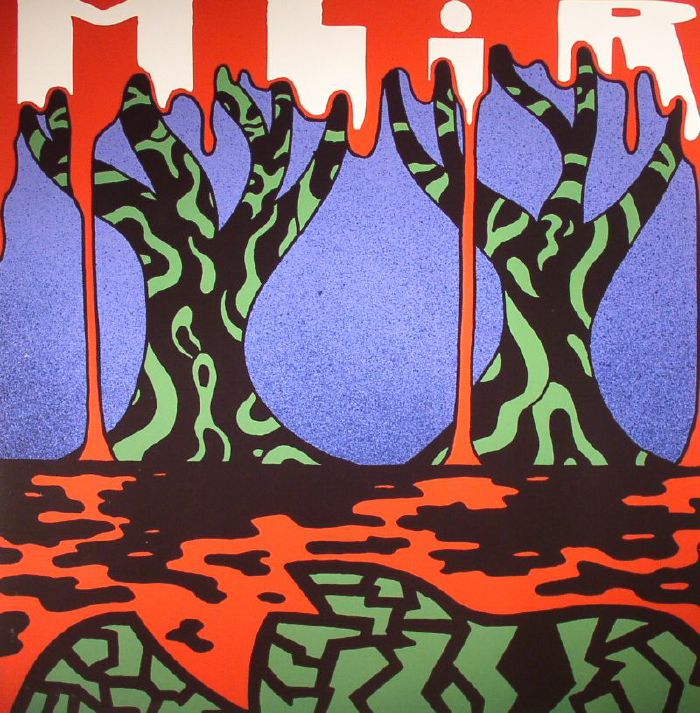“I’m essentially a remixer and DJ.” Nicolas Laugier is explicit, clear, and concise when it comes to defining himself as an artist. Although he was born in France, he is based in London for 20 years, and it is in the British capital where he has forged his legacy. Under his alias The Reflex, he has become an editing legend and an eminence in the disco genres. However, he himself assures that his musical range knows no limits. Wherever there is groove, we can find him, regardless of whether we are talking about dance music or not. Some of his latest works are tributes to Salsoul Records’ classics, such as Double Exposure’s “My Love Is Free” or Instant Funk’s “I Got My Mind Made Up”. Although, when asked about the last edit he would listen to in his life, he bets on the one he just made for Donny Hathaway. Other privileged people who have counted on his magic touch are giants like Noel Gallagher, Giorgio Moroder or Disclosure. It’s hard to understand why The Reflex is not -even- more famous.
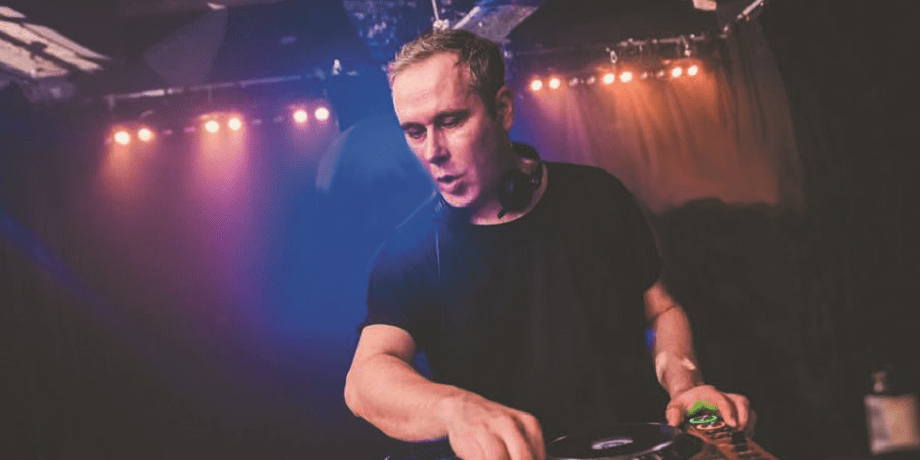
Nicolas, how would you introduce “The Reflex” to our readers?
I’m essentially a remixer and a DJ. The alias “The Reflex” comes from two things. First, I use this tool in Logic called flex-time, that allows you to quantize sounds to the tempo. It’s not an automatic tool, it’s gotta be done manually and I’ve spent so much time flexing and reflexing audio files, so I thought it would be rather appropriate. It’s a crucial part of the process before starting to remix, as a solid and good sounding flex is a huge part of the final result. Second, being fascinated by the history of remixing since a young age, I always loved that story of Nile Rodgers remixing Duran Duran’s hit song “The Reflex”; his mix was originally turned down by the record label for being “too black”, but the band insisted on his mix being released and it became their first number one. It’s more about Nile Rodgers (who obviously is a huge influence) rather than the actual song, which was a massive hit when I was ten years old and therefore part of my musical upbringing.
Some giants like Noel Gallagher, Giorgio Moroder, Disclosure or Purple Disco Machine define you as a front-line masterclass remixer. Are they right?
Hey, you’d probably need to ask them! (laughs) But yes, it certainly helps with credibility and your place in the music industry when so many big names support or enjoy your work. A while back in the space of one week I heard from Kerri Chandler, James Lavelle, Chris Moyles and Jeremy Healy. From one end to the spectrum to the other, which is amazing!
Why do you only remix?
For now, I’m strictly a remixer and DJ, yes. I’ve made the conscious decision when going full-time into a music career to make a name for myself as a remixer, following on the path set by the original remixers from the late 70s and 80s. I believe this is an art form in itself, as creative as making your own music. People like Tom Moulton or Larry Levan were always known as remixers first. Tom produced very little of his own music. Someone like François Kevorkian made original music much later in his career. Also, you’d have to specify what you call original music, as what some DJs produce nowadays is often a track with just a big sample and some beats, released under their own names. But yes, I’ve started playing in live bands, writing my own songs in my youth and the plan was always to get back to that at some point. Watch this space!
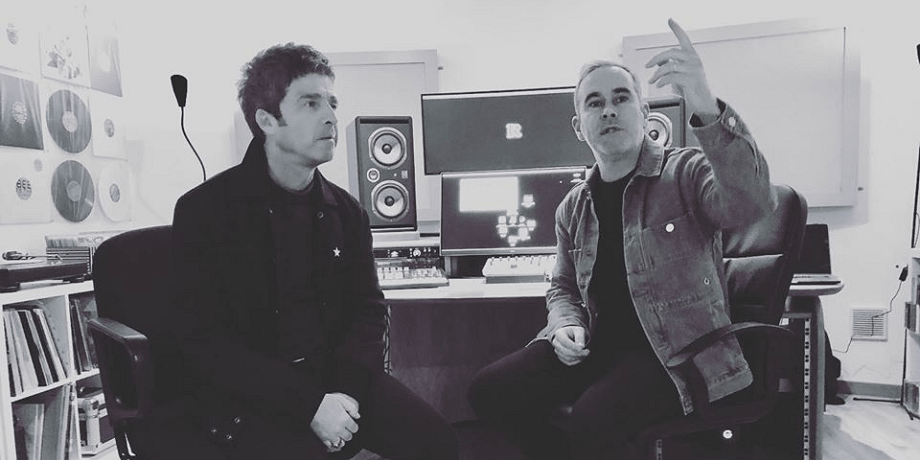
How did all this amazing journey begin?
My career is basically 20 years of precarious jobs and struggles after leaving school at 16 with no qualifications until I got to 36 years old and decided that enough was enough. I had been DJing part time for a long time, trying to produce music on the occasional day off and simply realized that time was running out. In 2010, I invested the little savings I had in a pair of decent speakers and studio rent for a year and worked non-stop every day on music production. Yes, it was always my dream to work in music, but having a dream is one thing, making it happen is another. That’s why I took the jump!
What music did you use to listen to at that time?
My music tastes are far and wide, I guess the common ground really would be the groove regardless of the music genres, from classic pop to soul, funk, disco and r&b to electronic dance music, world music, jazz, soundtracks and beyond! I’ve always been a fan of great arrangers like Charles Stepney or Lalo Schifrin. People who could transform a well-known song into their own.
Then The Reflex is not an only-disco-music consumer.
Not at all. For me, it’s all about the music that touches you and conveys emotions, and it certainly doesn’t stop at music you can dance to. Obviously, as a DJ, you are more often than not dealing with material that you want to play out for crowds to enjoy. But compared to some of my peers, I’m a lot more eclectic in terms of what I remix and this why I have been commissioned to remix artists like Noel Gallagher, Paul Weller, T. Rex, Blondie, Roxy Music, Seun Kuti, Nina Simone, Simply Red… As long as I feel that I can do my thing and the music speaks to me, I’m in. It’s also more challenging and more rewarding than to remix the same genre all the time. I am a big consumer of music and I’m constantly seeking out new and old stuff to vibe to.
Have you modified or adapted your techniques and processes in the studio during these years?
Good question. Actually, I’ve always been curious about remixing from multi-tracks, and to do what I do now 20 years ago would have been a lot harder, as the computer technology wasn’t great to process big audio files like it is now. So, in a way to have started when I did was a blessing as the technology was a lot less powerful, and affordable! I was skint for many long years.
You might have done a lot of friends during this period.
You mean famous friends? Yes, I guess I’m friendly or familiar with many established artists now, although I certainly don’t go around shouting that Noel Gallagher or Michel Polnareff are my best friends. I would mention producers Joey Negro and Mousse T., who have been very helpful to my career with their help and advice. More importantly for me, I have made lots of great new friends because of their love for my remixes, people I would have probably never met if I hadn’t gone in this direction in life. During my long years of struggles, I’ve suffered from huge low self-esteem and self-confidence issues. I’ve always found it hard to approach people as I didn’t value myself. Now, people actually do want to meet me and talk to me, and I am grateful for it.
Is there any especially funny story or day you remember now?
The funniest was probably that time where I was playing before Nicky Siano in Manchester. Just before the end of my set, there were about 6-7 professional female dancers who came on stage to do their thing. I finished my set, I thought Nicky was going to play a track straight away but instead he took the mic and proceeded to make a rambling speech for 20 min or so, with no music playing. The poor dancers were left to freeze on stage, waiting for the music to kick in but it didn’t for another 20 minutes. Certainly, it wasn’t funny for the dancers and I’ve felt for them, having to stay still while Nicky was telling his life story, or whatever he was on about. But still it was kind of a funny situation to be a witness of. A special gig would have been opening up for Nile Rodgers and Chic in London the day after my 40th birthday. During my set, Nile came on stage, bigged me up, we posed for photos, I had a grin so large on my face you could have seen it from the moon. 😊
How many remixes have you released in your career and which would be your special one, the track you’d love to listen to one last time?
I’ve done about 70 officially commissioned remixes and probably around 250 remixes for my own use. The #1 track I’d love to listen one last time would be the most recent, Donny Hathaway’s “Someday We’ll All Be Free”. I just can’t get enough of it. Which is usually a good sign. 😊
What advice would you give to a young producer who’s trying to edit music from other artists now?
When I started 10 years ago, there was a lot less people doing it and certainly not many doing it from the multi-tracks. Now that stuff is all over the net and everyday you’ll find a new remix of a classic disco song online, it’s a lot harder to stand out from the pack. I think the crucial element is to decide if you are doing this as a hobby and for fun, or if you want to make a professional career out of it. If that’s the case, you need to find your sound, your thing that will make you different and attract people to your work. I’m often told that when you hear one of my remixes, you can tell that it’s The Reflex. Dedication, hard work, attention to detail and vision are what will make the difference between you and the countless others doing the same thing. I think if you want to give it a go, do so for a couple of years seriously and, if you’re any good, you’ll be able to carry on.
What advice would you give to The Reflex from 20 years ago?
Value yourself. No one will believe in you if you don’t believe in yourself first.
(Cover Image: © Additive Music PR)



